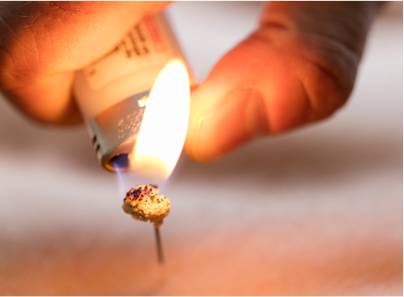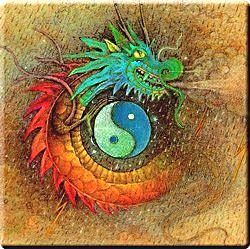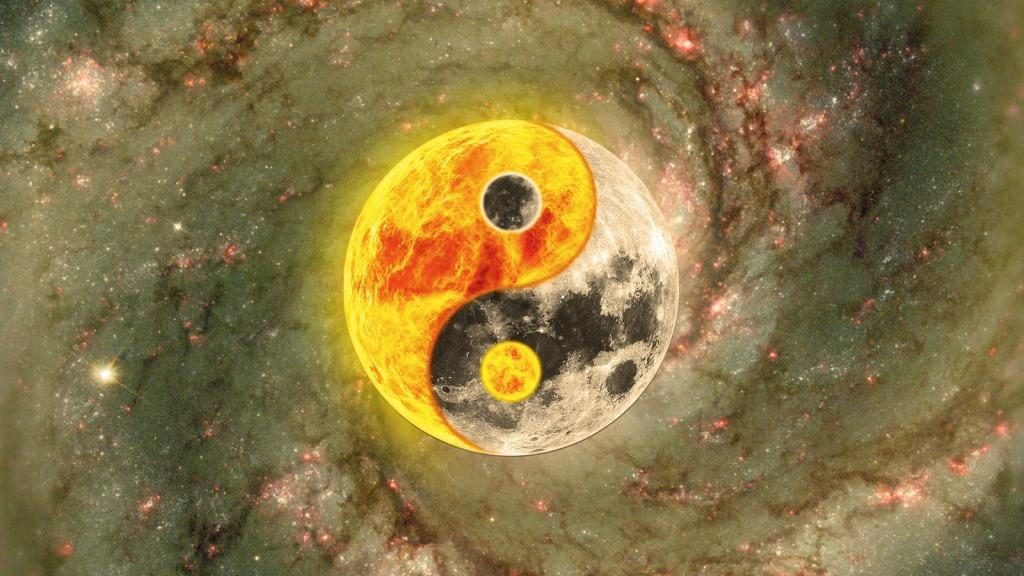
Insomnia: Learning to Make Friends with the Demons
“Humankind is being led along an evolving course…and though we seem to be sleeping, there is an inner wakefulness that directs the dreams, and that will eventually startle us back to the truth of who we are.” Rumi.
What is the purpose of disturbance in our lives? As a healer, philosopher and spiritual seeker, I have always looked for purpose within difficulty. Buddhism encourages us to “regard everything as a dream,” teaching that phenomena is not as solid as we think: everything is temporary, things are always changing. Some dreams are pleasant, others are nightmares. Yet, within these dreams, lie the seeds of awakening: “the truth of who are are,” as Rumi describes it.
Taoist philosophy teaches, it is only through being in the world that we learn about ourselves. Often it’s during difficult times when we are asked to wake up. It’s like the moment when we are meditating and a car alarm goes off outside. We have a choice: we can get annoyed, or be grateful that something external has shocked us away from daydreaming. Perhaps the disturbance also allows us to laugh at ourselves a bit, as we recognize how serious we tend to be about “getting it right” and keeping it all together.
There are also the things that happen internally to help wake us up. These are the catalysts Rumi speaks about: “the inner wakefulness directing the dreams.” They are the discomfort we feel with ourselves and the world: the fear that wakes us up at night, the frustration with our lives, the disappointment with ourselves, heartache and loneliness, the physical pain or anxiety about the future. Once again, we have the choice: do we run away and hide; do we numb ourselves and curse our fate? Or, do we acknowledge the discomforts as catalysts to wakefulness; maybe even thanking them?
Sleep disturbances are common within our society. Medications such as Ambian, Valium and Xanax are popularly given by doctors as sleep aids for insomnia. 43 Million prescriptions for sleep aids were written by doctors in 2005. In 2002, sales of the drug Ambian were $1.5 billion. Insomnia is a big problem.
I’ve had my own struggles with sleep disturbance. The most dramatic occurred when I was in acupuncture school. It was during a period when I was learning about the mental-emotional level of repressed emotion and memory. During this semester I would experience tremendous fear each night. I would frequently wake terrified: I even became afraid to go to sleep at night. The class was obviously stirring something up within me.
The difficult part of my sleep disturbance at the time was the unconscious nature of the fright. I couldn’t identify what the fear was about: it lacked a storyline. In fact, it took weeks before I could even identify the agitation as coming from fear. I would wake in the night agitated, unable to fall back asleep, however the agitation was generalized. Only later was I able to identify the quality of the agitation as fright.
I began referring to my night frights as “the demons who would visit me,” making reference to Buddhist sages who were forced to deal with demons as part of their path to enlightenment. I had to develop a sense of humor about the situation, as it was becoming ridiculous!
I began consulting my acupuncture teacher about my sleep disturbances. He likened my “visits from the demons” to an aspect of training done by Buddhist monks. This practice included spending the night in the “charnal grounds,” or graveyards. Tibetan graveyards were terrifying places. The Tibetans didn’t bury their dead: they left them out for the vultures to eat. In the charnal grounds, the monks were forced to face the “demonic spirits” who dwelt there. However, I believe what they were really facing were their own fears around life and death.
You may ask, “why in the hell would someone do something crazy like spend the night in such a terrifying place as the charnal grounds?!?” However, in a way, we are all forced to do this at some point or another. Something will eventually arise, either from outside ourselves, or from within that will force us to face our fearful demons. As a practice, the monks were instructed to neither run from (repress) their fear, nor give into it through acting it out. Not always an easy thing to do.
The story of the Buddha on the night he entered into enlightenment involved a meeting with the demons. Since neither resistance nor hiding ever seemed to work against them, he finally invited the demons to sit and chat with him: welcoming them. He made friends with the demons, and suddenly they ceased to bother him. From this practice, the world also ceased to bother him, and he entered an enlightened state.
Not to say this is easy! It’s not. But the story shows it may be the only way to deal with our demons: to welcome and make friends with them. There’s a ritual in Buddhism I think is both funny and brave, where an offering is set out each night for the demons to eat. The offering is not intended to repel the demons, but to acknowledge them;, even invite them back.
Why would we want to invite the demons back? Especially after all the dark circles under our eyes and grouchy mornings they’ve caused? The wise sages of the past, including Rumi and the Buddha teach us that the demons are instruments of awakening. They are our way into enlightenment and freedom.
I witness people facing themselves everyday. As an acupuncturist, I support people through the evolving course of their lives, as they wake up to the truth of who they are. This often manifests as sleep disturbance. I recognize when people are “spending nights in the charnal grounds,” metaphorically speaking.
Proper restful sleep is essential for good health. Therefore, this problem is often placed at the top of the list of treatment priorities. To heal from any illness, one must have good sleep.
I have yet to find a healing modality more effective than acupuncture in treating mental-emotional disturbances such as insomnia. Acupuncture has the ability to calm both the mind, as well as soothe the muscles. It induces a deep state of relaxation and ease, which are essential in dealing with any form of “demon” challenging the body, mind or spirit.
For example, in the treatment of chronic degenerative conditions that affect the tissues of the body, the first two strategies suggested are: relax the muscles and calm the mind/spirit. Relaxation gives the immune and digestive systems the ability to rebuild the body. It also allows the body to gather the will to face the demons challenging us.
Rumi’s words beautifully capture the essence of healing. When a patient is left to rest after the acupuncture needles are inserted, I witness an internal process occurring. Most fall into a type of meditative sleep. Some talk or make sounds, dream, or have visions in this state. I believe they are reaching into their “inner wakefulness,” to make peace with the demons, so they will no longer be at war. When the war within has ended, the famines and destruction can cease in their bodies and minds.
As we make peace with our demons, we begin to learn, it is not the demons themselves that cause the problems, but our resistance to them: our fear and aversion. We learn to accept the world as it is. We begin to see the past, and all of our disappointments as necessary tools for our own awakening. Like the car alarm that disturbed our peaceful meditation, we become grateful for the disturbances that have shaken us up.









No Comments